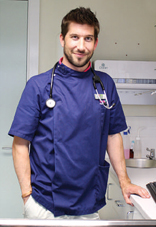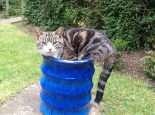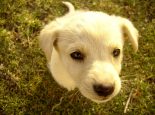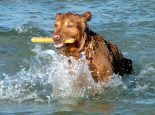Pet answers: it’s all about munching

My dog needs a lump removing but I’m terrified about him having an anaesthetic as he is 10 years old. Is it safe?
I have to start by saying that no anaesthetic is without risk but often that risk is very low. In itself age is not a concern, but it means animals are more likely to have underlying issues that can make an anaesthetic more risky. The key to any anaesthetic is assessing the risk and making sure that everything is done to minimise that risk. That can include taking pre-operative bloods to check the internal organs are working well, intravenous fluids to keep your dog hydrated and changes to the drugs used to be safer for an older animal. A vet should be able to go through this and between yourselves you can decide what things are appropriate. The good news is that a small lump removal is likely to be a much lower risk surgery than some performed and should entail a minimum of time under anaesthetic.
My rabbit is spitting out some of her chewed food but still seems hungry. What could be wrong?
The most likely cause of this is teeth problems. Because rabbits have constantly growing teeth they need to wear them down by eating and abrasion, with any abnormal or uneven wear causing issues. The back teeth can end up getting sharp spikes, either to the tongue side or to the cheek side, that can cut the inside of the mouth and cause painful areas which then lead to difficulty eating. The front teeth can end up not aligned and grow very long and cause issues with closing the bite. You may be able to check the front teeth but a vet will need to check the cheek teeth and inside of the mouth. This can be a very serious issue if your rabbit does not eat at all due to the pain. The risk of dental issues can be minimised by ensuring the diet is made up in large part by good quality hay and roughage and not too much in the way of nuggets or fruit and veg.
We have a new puppy and his teeth are very sharp when he bites us and it hurts the children. How do we stop him?
I will have a guess and say that when you first got him everyone played with him and it was fun when he fought back but now he won’t stop? When a puppy is young he will want to play a lot and will learn based on our reactions. When he is very small the play bites don’t hurt so we will often encourage this play because it is fun. Unfortunately he will learn that this is acceptable behaviour and he will have no idea of how hard he should play bite. Now you will need to teach him that this is not acceptable. This may take some time and will involve everyone in the family doing the same training and not encouraging him to play bite. If he does bite take your hands away and either say ‘ow’ or ‘no’ loudly so he reacts and then encourage play with a dog toy instead. If he persists then you can give him some time out in another room away from the excitement but with a toy as distraction. If you are struggling or in doubt have a chat with a veterinary nurse as a start. Our nurse Helen Connor is very good at these issues.
Do you have a pet or animal health question? Send it to us at: . Cees will endeavour to answer all questions, whether published or not!
Cees Bennett BVetMed MRCVS Veterinary surgeon and Joint Venture Partner at: Peterborough Vets4Pets 231-233 St Paul’s Road Peterborough PE1 3RL Tel: 01733 890777 & Bretton Vets4Pets Inside Pets at Home Unit 2 The Bretton Centre Peterborough PE3 8DN Tel: 01733 261094
















